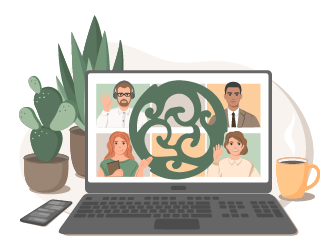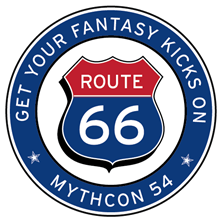Loading...
Document Type
Paper
Event Website
http://www.mythsoc.org/mythcon/mythcon-51.htm
Start Date
31-7-2021 10:00 AM
End Date
31-7-2021 10:45 AM
Description
This paper endeavors to uniquely address a question proposed by Tom Shippey in a guest editorial for Mallorn issue 45. “[R.G.] Collingwood and Tolkien were both Fellows of Pembroke College for nearly a decade till 1934, when Collingwood took up a Chair at C.S. Lewis’s college, Magdalen. Did the three of them ever talk about, agree about, disagree about the subject of folktales, on which Collingwood was working and publicly lecturing in the 1930s?” (Shippey 4). In order to answer Shippey’s question, I suggest that ‘folktales’ may not be the only or best way into this investigation. While we know that ‘folktales’ were certainly discussed between the two scholars, a deeper and more fundamental connection may lie in a shared view of language, history, and imagination that has its common source in the philological philosophy of Giambattista Vico (1668–1744). Most significant to understanding Vico’s complex philology is his “master key” –the assertion that there was a time when humans lived and expressed a poetic mode of being in the world, or as Vico calls it, a “wholly corporeal imagination”. I will lay out the principles of Vico’s corporeal—or lived—imagination and demonstrate the unusually close proximity to Tolkien and Collingwood’s unique projects. This is particularly significant in terms of Tolkien studies as Collingwood’s influence on Tolkien, though overshadowed by the influence of Barfield’s Poetic Diction, may be as or even more significant during Tolkien’s highly productive period between 1929 and 1939. In conclusion, the paper will demonstrate the manifold points of contact among the three (Vico, Collingwood, and Tolkien) that should conceivably make future readings of Tolkien impossible without the inclusion of Vico and Collingwood.
Paper presented by Reno Lauro.
Tech Mod: Jessica Dickinson Goodman.
Creative Commons License

This work is licensed under a Creative Commons Attribution-NonCommercial-No Derivative Works 4.0 International License.
Included in
Philology and the Lived Imagination: Vico, Collingwood, and Tolkien
This paper endeavors to uniquely address a question proposed by Tom Shippey in a guest editorial for Mallorn issue 45. “[R.G.] Collingwood and Tolkien were both Fellows of Pembroke College for nearly a decade till 1934, when Collingwood took up a Chair at C.S. Lewis’s college, Magdalen. Did the three of them ever talk about, agree about, disagree about the subject of folktales, on which Collingwood was working and publicly lecturing in the 1930s?” (Shippey 4). In order to answer Shippey’s question, I suggest that ‘folktales’ may not be the only or best way into this investigation. While we know that ‘folktales’ were certainly discussed between the two scholars, a deeper and more fundamental connection may lie in a shared view of language, history, and imagination that has its common source in the philological philosophy of Giambattista Vico (1668–1744). Most significant to understanding Vico’s complex philology is his “master key” –the assertion that there was a time when humans lived and expressed a poetic mode of being in the world, or as Vico calls it, a “wholly corporeal imagination”. I will lay out the principles of Vico’s corporeal—or lived—imagination and demonstrate the unusually close proximity to Tolkien and Collingwood’s unique projects. This is particularly significant in terms of Tolkien studies as Collingwood’s influence on Tolkien, though overshadowed by the influence of Barfield’s Poetic Diction, may be as or even more significant during Tolkien’s highly productive period between 1929 and 1939. In conclusion, the paper will demonstrate the manifold points of contact among the three (Vico, Collingwood, and Tolkien) that should conceivably make future readings of Tolkien impossible without the inclusion of Vico and Collingwood.
Paper presented by Reno Lauro.
Tech Mod: Jessica Dickinson Goodman.
https://dc.swosu.edu/mythcon/mc51/schedule/2



Comments
Recorded Session